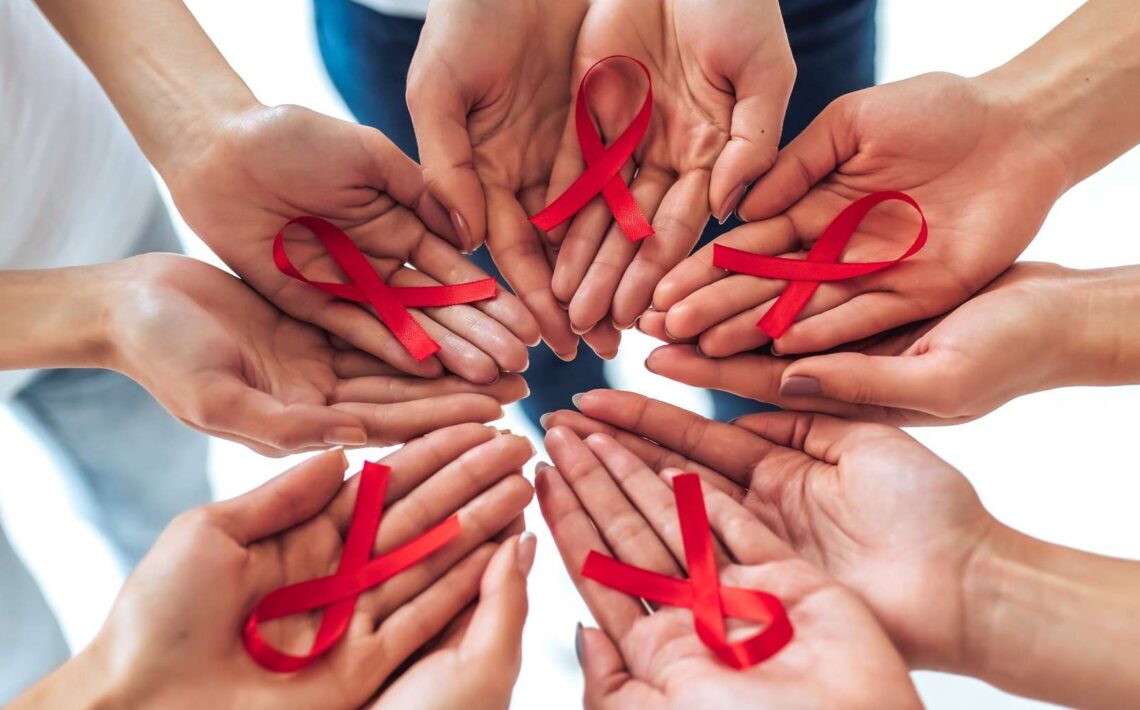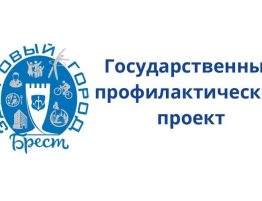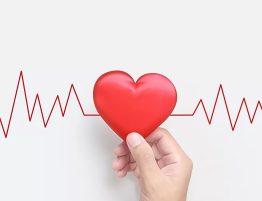
International AIDS Remembrance Day is held annually on the third Sunday of May in many countries around the world.
This day was marked on the calendar exactly 40 years ago – back in 1983. At that time, people began to attach a red ribbon to their clothes to express their solidarity with people affected by the problem of AIDS and measures aimed at reducing stigma and discrimination towards people living with HIV. This ribbon became an international symbol of the fight against AIDS. At that time, people knew little about HIV infection.
For many years, the human immunodeficiency virus (HIV) and death were equated. Today, thanks to the achievements of modern medicine, HIV infection has become a chronic disease that can be controlled: antiretroviral therapy slows the progression of HIV infection and gives people with HIV the opportunity to live a full life. Today, all patients with HIV infection in our country receive therapy free of charge. Therefore, we do not say “victims”, on this day we remember people who died from AIDS.
In the Republic of Belarus, more than 24 thousand people live with the diagnosis of “HIV infection”. Every year, about 2 thousand new cases of HIV infection are registered in the country. The largest number of new cases in recent years has been registered among people aged 30 to 49 years, the sexual route of HIV transmission predominates, accounting for more than 80%.
Today, there is a call for HIV testing. It is important to understand that any person, regardless of gender, social status, income level and education, for one reason or another, can be infected with HIV and not even know about it for a long time. Timely detection of the virus makes it possible to fight for the quality and duration of life of each individual.
Since 2018, Belarus has provided universal access for patients to antiretroviral therapy (ART, ARVT), that is, the state guarantees the provision of HIV treatment to all people living with HIV, regardless of the stage of the disease and the level of immunity. Today, 87.4% of people living with HIV in the republic receive antiretroviral therapy, thereby maintaining their health and quality of life. The country has established the production of antiretroviral drugs, which provides more than 82% of all currently prescribed treatment regimens.
The main ideas of the International Day of Remembrance of People Who Died from AIDS are support and solidarity with the community of people affected by the problem of HIV infection, in uniting and supporting the efforts of state, public and international organizations in combating the HIV epidemic.
Don’t forget about those who died, who couldn’t be protected. Give moral support to people living with HIV. Remember that the problem of HIV infection can affect each of us.
Prevention of HIV infection. Routes of HIV transmission.
HIV infection is a chronic drug-controlled infectious disease caused by the human immunodeficiency virus (HIV). Currently, it is impossible to completely remove HIV from the body. At the same time, thanks to modern methods of treatment and diagnostics, it is possible to stop the progression of the disease and prevent the development of the terminal stage.
How is HIV transmitted:
- Through blood: most often through injection drug use, but can also be transmitted through tattooing with non-sterile equipment outside specialized institutions.
- During unprotected sexual intercourse without using a condom. Even one sexual intercourse can lead to HIV infection.
- From an HIV-infected mother to a child during pregnancy, childbirth and breastfeeding (if the mother is not treated).
Thanks to the achievements of modern medicine, such a disease as HIV infection is no longer fatal. By starting treatment with antiretroviral drugs in time and following all the doctor’s instructions, people living with HIV can live a long and full life, start families, and give birth to healthy children. The quality of life of HIV-positive people, thanks to these drugs, is almost no different from the quality of life of people without HIV.
The clinical picture of the disease will not develop if an HIV-positive person:
- find out your HIV status as early as possible;
- regularly visits an infectious disease specialist;
- undergoes the necessary examinations;
- is receiving antiretroviral therapy (ART);
- takes medications responsibly (does not miss doses, follows the prescribed treatment regimen), which allows for an undetectable viral load during treatment and stops the transmission of HIV to other people.
It is important to understand that despite the fact that a person may not be a representative of high-risk infection groups, for one reason or another he or she may be infected with HIV and not even know it for a long time. Timely detection of the virus makes it possible to fight for the quality and duration of life of each individual person.
You can prevent infection by following these rules:
- do not use drugs;
- remain faithful to one partner and avoid casual sex;
- use a condom;
- seek medical help promptly in case of inflammatory diseases of the reproductive system and sexually transmitted infections;
- invasive procedures (tattoos, piercings, etc.) should be performed only in specialized institutions;
- use only individual personal hygiene items (razors, blades and manicure accessories, etc.).
Consultation on HIV/AIDS issues can be obtained from the Department of HIV Infection Prevention and Parenteral Viral Hepatitis of the Brest Regional Center for Hygiene, Epidemiology and Public Health or from territorial centers of hygiene and epidemiology, and healthcare organizations of the Brest Region.
- Call on weekdays (Monday – Friday) from 8:00 to 17:00:
8 (0162) 53-06-59, 8 (0162) 58-94-54
You can get tested for HIV, including anonymously, at any healthcare facility that has a procedure room. Pharmacies in the region sell kits for conducting an independent express HIV test using saliva.
Be vigilant and prudent in your actions and deeds. If you have the slightest doubt, take an HIV test!








